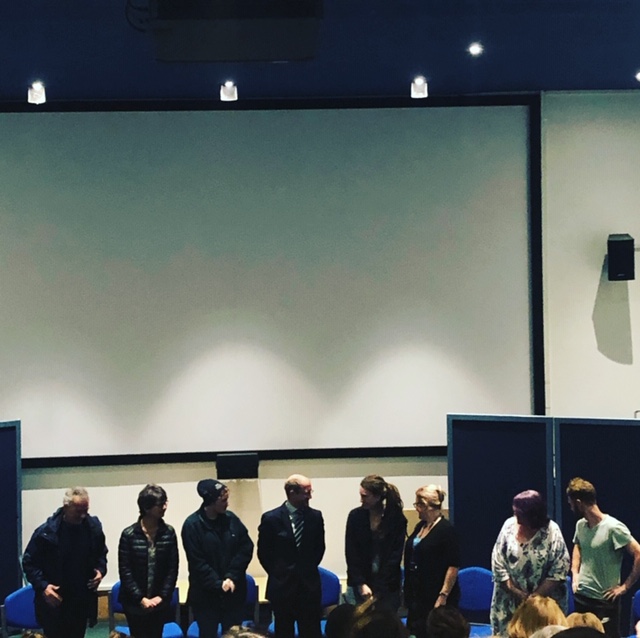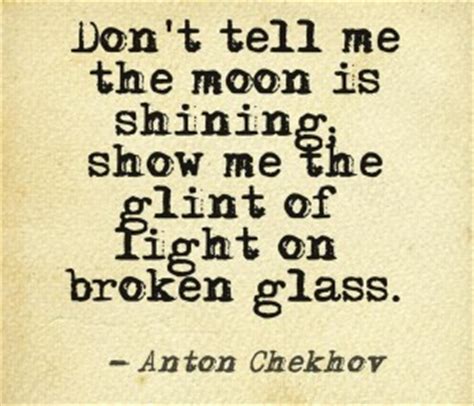On December 4th I travelled to see the production of the ‘What Next Theatre Group’ who describe themselves as ‘a new and exciting company working with Gloucestershire County Council and the Nelson Trust to present a new play in three scenes called ‘Who Cares?’ The play deals with the difficult issues surrounding adoption and the real consequences for the family and professionals involved’.
it was clear that the intent went beyond the mere presentation of a piece of theatre – after the play the actors and real life professionals gathered on stage to take questions from the audience – the actors remaining in character.
As the Theatre Group says:
We think that there is a rapidly increasing interest in the work of the family court and in the social issues with which it deals. We want to work together to show what may be done to help people through the most difficult ties of their lives – times when they experience extreme loss and degradation. We hope that by combining legal knowledge, theatre experience and the important work of the Nelson Trust, we can help the audience to consider new ideas and practice changes and understand some of the social issues that arise in this difficult area
So what follows are my impressions about how this enterprise met its stated goals.
It was certainly a bold idea. I do not wish to criticise its staging as that would clearly be unfair – this is a group which was set up about 8 weeks ago and presenting its work in a brightly lit lecture theatre with a very difficult and small stage on which to work. I would like to see it performed in a more sympathetic environment – the actors alone cannot do all the work of enabling us to suspend disbelief and even a punchy script and talented performers will struggle against these surroundings.
I am also entirely unclear what the random ‘trans’ character Ella/Ed bought to the narrative, other than to enable some members of the audience to signal their deep understanding around issues of inclusivity and identity by putting questions to Ed about how his (fictitious) family coped with his search to know who he was.
One of the most powerful strands of the script was the fact that the mother was herself adopted at the age of four, and how her adoptive parents had struggled with apparently little support with her behaviour as she grew. This is worthy of more exploration.
I also felt that the way in which the scenes were ordered detracted from rather than powered up the narrative – the court scene came second, after a very powerful opening in the hospital where the social worker was assaulted by an angry and terrified young mother, facing the removal of her second child.
I would have liked to have seen the court judgment as the final scene – it was well done, and an uncomfortable experience to be forced as a member of an audience to consider how the legal language and dry rejection of the birth family as ‘suitable’ to care for a child, must feel to those who have to sit and listen and struggle to understand.
I suspect that a more accommodating stage would have allowed for the court scene to have more power, regardless of where in the time line it came.
However, I can see that the drive of the production was to explore how after these proceedings the mother was simply left behind – the circus packed up and moved on, her only option to find temporary hostel accommodation once her mother and baby foster placement came to and end. The court is not the ‘end’ for parents.
‘Show not tell’
Leaving the limitations of staging aside, how did this production succeed on its aim to ‘show, not tell’ and to educate people about the work of the family justice system?
Without interviewing the entire audience its hard to say for sure. But I think I picked up enough information to reach some tentative conclusions. I was able to interview two of the audience who had no choice but to answer my questions as I was driving them home. This was interesting. One was a teenager who claimed to have only come because I bribed her with steak. However, she was able to provide an animated response and the evening had clearly piqued her interest. She found that language used by the mother challenging – she appreciated that this was no doubt realistic but it put up a barrier for her being able to feel compassion and sympathy.
The other was a newly qualified social worker who was very enthusiastic and said it had been a ‘great learning experience’ for her. She felt frustrated that she hadn’t been able to ask questions of the cast and wanted to know much more about why the baby’s grandparents could not have cared for him and what underpinned the social worker’s relationship with the mother in the first scene.
She asked – and I thought this very interesting – why no one had commented on the fact that the social worker was physically assaulted in the very first scene. Why this is something that is just seen as ‘what happens’ to social workers,
During the question and answer session with audience and cast, I was struck by how many in the audience appeared to be social workers, given the laughter or angry murmuring that followed some comments. One of the biggest laughs followed a question to the social worker about why she wanted to do the job. When asked how she coped she replied ‘I have supervision’ which bought another cynical chuckle from many.
The assertions of the Nelson Trust that social workers were ignorant about ‘trans’ and addiction issues caused a definite ripple and some passionate responses that it was simply wrong to expect social workers to know everything about everything – they work in multi agency teams and part of their job is knowing when they DON’T know and where to send people to for help.
So I asked if the audience would give me a show of hands as to how many were social workers. It was about half the 150 strong audience.
And that is interesting. Because its part of why I am concerned that these efforts to help people understand will not bear the fruit that is hoped. Its part of the reason that I abandoned active campaigning earlier this year – as I was so depressed by the refusal of many to challenge their own narratives, how they used every attempt to widen conversations as simply support for that narrative, rather than a challenge to it that ought to be accepted.
HHJ Wildblood was asked by the audience why he had become involved. His answers were interesting – I paraphrase here:
People don’t see how the family court works, just don’t understand the system, so I put this on stage … feel don’t think, make up your own minds…really wanted to make the point for after care, parents matter too. The main work must surely be done before court.
The whole purpose of our lives in one word – compassion. There is no ‘them’ there is only ‘us’ – want to try and send out that message.
It is powerful to hear these words spoken by a serving and senior member of the judiciary. I do not disagree at all with his distillation of the central message into one word – compassion.
But what the audience reaction showed to me is that efforts to make people ‘feel’ rather than ‘think’ may do nothing else but cement their already strong ‘feelings’ about why the system doesn’t work or who is to blame. It was clear where the Nelson Trust thought the blame should lie – parents aren’t given ‘enough time’ to make changes. In one uncomfortable exchange with the birth mother the social workers were referred to as ‘fuckers’ – this made the newly qualified social worker very uneasy, coupled with the complete lack of reaction from anyone to the fact that the social worker faced a physical attack on meeting the mother.
Nor do I think the ‘enough time’ argument has any weight. When I started out, 20 years ago, care proceedings routinely took one or even two years to drag to conclusion. This helped no one, least of all the child. ‘Time’ alone cannot turn around a person’s life. ‘Time’ plus ‘effective intervention’ may well do so. But this we do not have, for a variety of reasons – none of which say anything good about us as a species.
The reasons the system is failing are many. But as a species we cling to simple narratives to try and make sense of chaos and pain. It was clear that some in the audience (and cast!) clung to that narrative that its the ‘fault’ of the social workers – their arrogant language that they made the ‘decisions’ rather than recommendations to the court. And social workers don’t help themselves by this constant refrain that ‘we are child focused’. A child doesn’t exist in isolation from his family. A system that leaves the parents behind is cruel and ineffective. As the parents go on having children.
But. As the real life Team Manager said ‘We have to make the decisions that no one else wants to make’.
I think there is a real risk that social workers are being blamed for each and every social ill that has led us here. The saddest comment of all, for me, was to here the Team Manager talk about the difficulties of working with people from other agencies – the lack of time, the lack of trust.
And this chimes with my fundamental concern. Most people, most of the time appear to be on broadcast mode only. To open up space in their heads for real thought, to challenge their dearly held narratives is hard. Not many people seem able or willing to do it. I hope that events such as these do push at the door for some. Without a willingness from all concerned to be honest about what is happening, the situation can only get worse. But already it is quite beyond the efforts of any one group to change.
However, whatever my fears and cynicism – which certainly I also have to be open to challenge – at least 150 people traveled on a cold winters evening to participate with enthusiasm in a pretty unique piece of theatre. It is no small thing that a serving member of the judiciary has taken this step and is trying to do something to make us remember – there is no ‘them’. There is only ‘us’.


